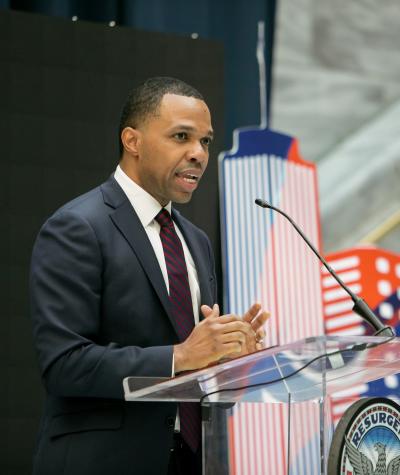The city of Atlanta’s Ethics Office recently celebrated its 20-year anniversary. CLC’s Vice President, General Counsel, and Senior Director of Ethics, Kedric Payne, was invited to speak to the accomplishment.
Kedric’s speech, given at a ceremony held September 12, highlighted the city’s swift response to a corruption scandal involving a former mayor which led to the creation of the independent ethics office that enforces the law today. He also spoke to the importance of continuing to pursue ethics reform, because staying stagnant as an independent ethics body makes it difficult to account for and respond to new ethics challenges as they arise.
This is an important message for not just Atlanta’s Ethics Office, but for ethics commissions operating in cities and states across our nation. The health of our republic depends on accountable, inclusive, and transparent processes at all levels of government, and in order to support that goal, state and local ethics commissions must be deploying the latest and strongest innovations.
In the current climate, ethics commissions face a variety of challenges. While some face setbacks due to low funding or staffing shortages, many face challenges that threaten their very existence as an independent ethics body, as we are currently seeing in New York state.
State and local ethics commissions play a vital role in the health of our democracy by upholding transparency principles and administrating laws and rules that preserve the public’s trust in government.
To help ethics commissions uphold ethics rules and law, Campaign Legal Center has published a yearly Top 10 report detailing some of the best tactics commissions across the country have implemented. In 2021, the report focused on transparency upgrades, and in 2022, it examined enforcement upgrades.
By implementing stronger transparency solutions, ethics commissions can better educate and advise government officials, engage and inform the public, and enforce the law against the noncompliant. Additionally, through stronger enforcement programs, ethics commissions can increase accountability for ethics violations, deter noncompliance, and improve the public’s trust in government.
But ethics commissions need more than just suggestions on how to be more effective. They also need public officials to prioritize ethics and for the public to show their elected officials how important ethics and ethical behavior are to them by supporting ballot initiatives that force officials to clean up government and hold themselves to the highest ethical standards.

